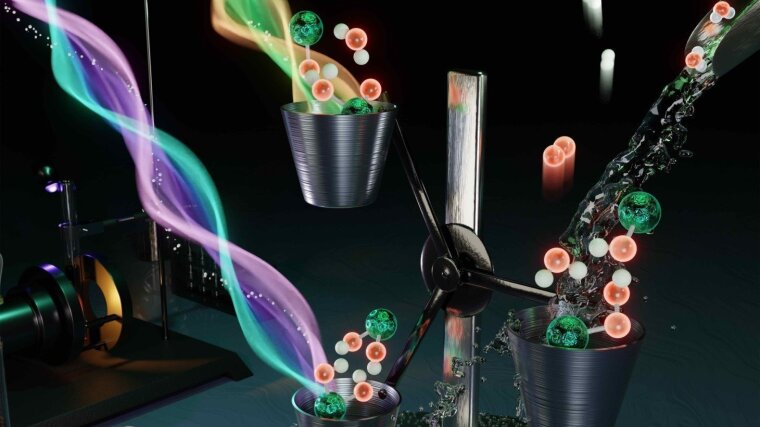Research
Research in the Water Splitting Group

Artistic depiction of the sun and water
Image: Hrishi OlickelThe research in our group focuses on the development of applicable photocatalysts for green hydrogen production.
Green hydrogen will be a crucial component of the energy transition. A promising route for its production is the direct splitting of water using sunlight, mediated by a photocatalyst. However, we currently lack suitable photocatalysts which could enable this process at scale.
Therefore, we investigate novel mechanisms for light driven water splitting, apply this knowledge for the development of photocatalysts and we perform techno-economic and life-cycle assessment of hydrogen production to identify quantitative targets for catalyst development.